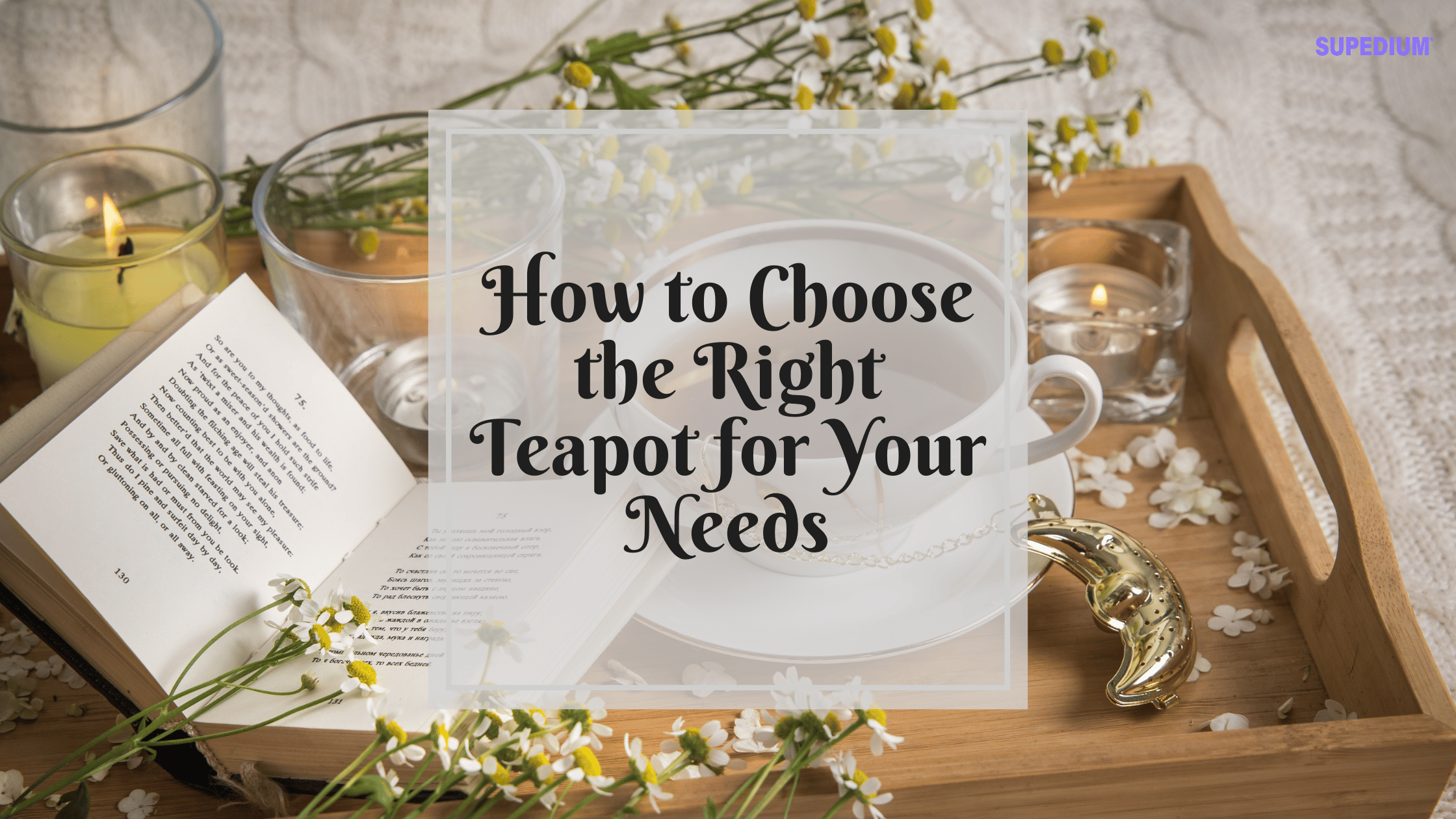Table of Contents
![]()
Choosing the right teapot can significantly enhance your tea-drinking experience, whether you’re a casual sipper or a dedicated aficionado. With a wide range of styles, materials, and features available, selecting the perfect teapot can feel overwhelming. This guide will help you navigate the options and find the teapot that best suits your needs.
Understanding Different Types of Teapots
Material Types
- Porcelain
- Pros: Porcelain teapots are known for their elegant aesthetics and excellent heat retention, making them ideal for serving traditional teas. They often come in beautiful designs that can enhance your table setting.
- Cons: However, porcelain can be fragile, requiring careful handling and storage.
- Glass
- Pros: Glass teapots allow you to watch the tea as it brews, providing a visually appealing experience. They’re great for showcasing blooming teas and herbal infusions.
- Cons: The downside is that glass teapots usually have less heat retention compared to other materials, so your tea may cool faster.
- Cast Iron
- Pros: Renowned for their durability and exceptional heat retention, cast iron teapots (or tetsubins) are perfect for keeping tea warm for longer periods.
- Cons: They can be heavy and require regular maintenance to prevent rusting, which can be a downside for some users.
- Clay (Yixing)
- Pros: Yixing teapots, made from a unique clay, are celebrated for their ability to enhance the flavor of the tea over time. They are traditionally used in Chinese tea culture.
- Cons: These pots require seasoning and are less versatile since they are usually designated for specific types of tea.
- Stainless Steel
- Pros: Durable and easy to maintain, stainless steel teapots are resistant to staining and odors, making them practical for everyday use.
- Cons: However, they may lack the aesthetic appeal of more decorative materials and can sometimes affect the taste of the tea.
Style and Design
Teapots come in various styles, from traditional to modern. Consider the size and capacity that best fits your needs—whether you’re brewing a single cup or enough for a gathering. The design of the spout can also influence pouring functionality, while ergonomic handles enhance comfort during use.
Assessing Your Needs
Personal Preferences
Understanding your tea preferences is crucial. Consider what types of tea you enjoy most, whether they are loose leaf, bagged, or herbal. Your preferred brewing style (Western or Eastern) will also influence your choice.
Frequency of Use
Are you a casual drinker or a daily enthusiast? If you frequently entertain guests, a larger teapot might be more suitable, while a smaller pot could suffice for personal use.
Serving Size
Think about whether you typically brew tea for yourself, your family, or for gatherings. This will help you determine the ideal size and capacity of your teapot.
Key Features to Consider
Infuser Options
Decide between a teapot with a built-in infuser or one that requires a separate infuser. Built-in infusers are convenient, while separate ones allow for more flexibility. Pay attention to the design—mesh or perforated infusers can impact the brewing process.
Heat Source Compatibility
Ensure your teapot is compatible with your heat source. Some pots are stovetop safe, while others are designed solely for brewing. If you use an induction stove, check for compatibility with your chosen pot.
Maintenance and Cleaning
Consider how easy the teapot is to clean. Some materials are dishwasher-safe, while others require hand washing. Additionally, be aware of staining and odor retention, especially with clay and certain metal pots.
Aesthetics and Style
A teapot’s appearance can enhance your overall tea-drinking experience. Choose colors and designs that resonate with your personal style or match your existing kitchen decor. For collectors, unique or limited-edition designs may be especially appealing.
Budget Considerations
Teapots are available at a range of price points. Determine your budget and consider the long-term value of your purchase. Higher-quality teapots may cost more upfront but can offer durability and better performance over time.
Where to Buy
You can find teapots at local tea shops and specialty stores, where you can often see and feel the products before purchasing. Online retailers also offer a vast selection, often at competitive prices. If you’re interested in unique finds, consider browsing vintage shops or online marketplaces for second-hand options.
Conclusion
Choosing the right teapot involves careful consideration of various factors, including materials, size, design, and personal preferences. By understanding your specific needs and preferences, you can find a teapot that enhances your tea experience, making each cup a delight. Don’t hesitate to experiment with different styles and materials—your perfect teapot is waiting to be discovered!
Share This





Be the first to comment